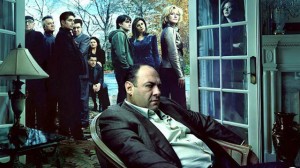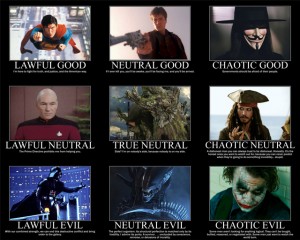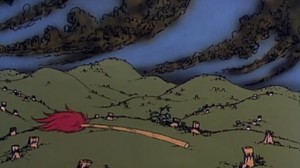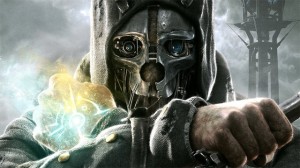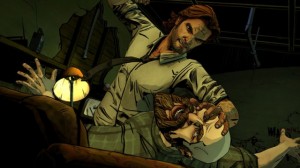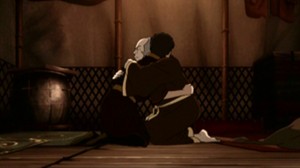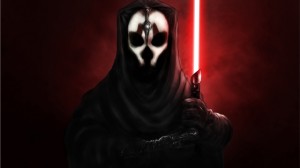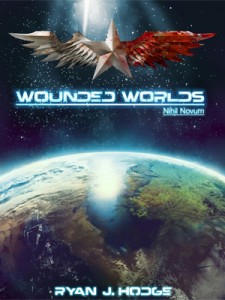-Ryan J. Hodge
For someone who enjoys a great story, is there anything better than a narrative that engages you from the very start? Imagine a world so rich you can almost smell the scents in the air, a delivery so clever it forces you to think in a way you never thought you would. I’m Ryan J. Hodge, author, and I’d like to talk to you about…Video Games.
Yes, Video Games. Those series of ‘bloops’ and blinking lights that –at least a while ago- society had seemed to convince itself had no redeeming qualities whatsoever. In this article series, I’m going to discuss how Donkey Kong, Grand Theft Auto, Call of Duty and even Candy Crush can change the way we tell stories forever.
What Moral Choice Systems Teach Us About Writing Better Characters
When we think of some of the truly great characters in contemporary narrative, one might notice that it is a certain type of character that rushes to mind above all others. The traditional hero may be all well and good, but does not lend itself to the same examination as Charles Foster Kane or Tony Soprano. In their respective stories, it can be easily claimed that it is the personality of these characters that drove the narrative forward and less the circumstances in which they found themselves.
With Kane, we see a young, idealistic man begin with an ardent “Declaration of Principles” only to descend into an unfulfilled life of selfishness and bitterness. Soprano spends years carefully crafting and scheming to build his criminal empire only to have it result into something no more stable than a house of cards. Whatever the goals of these characters, their story was not one of how they achieved them but of how their decisions affected their ability to pursue them.
One might be forgiven to think that with videogames there is only one goal: win. Obviously, as conventional wisdom goes, your decisions either allow you to win or they don’t. However, as games have advanced, the question of ‘how do I win?’ is slowly being supplanted by ‘why do you want to win?’ Are you out to do good? Seek revenge? Or just cause as much mayhem as possible? More and more games are allowing players to answer these questions in a fashion unique to them with a mechanic known as the “Moral Choice System”.
The Moral Choice System is not particularly new, and it is arguable that its earliest incarnations appeared in the pen and paper role playing game Dungeons & Dragons. In effect, it functions as a rough predictor as to how other characters will feel and respond to player decisions. Those who are ‘lawful’ may approve of even evil and disgusting decisions so long as they uphold order, whereas those who prioritize ‘good’ with support just and kind actions regardless of their legality (for example: a lawful character will turn a bread thief over to the authorities where a ‘good’ character may let him return home to feed his family).
With this simple rubric, we may find that characters who are nominally on the same side can have vastly differing priorities, and the pursuit or abandonment of these priorities may ultimately be the key to their downfall or redemption.
Such examples need not be overly complex to be compelling. Dr. Suess’ The Lorax (1971) tells a very simple story of an industrious entrepreneur too blinded by his own success to face the damage he’s doing to the world around him. It isn’t that the Onceler cannot see the consequences of his excesses, but that he cannot bring himself to abandon all that he’s built even though with each passing day, his complete failure looms ever nearer.
This is the position the Player faces in Dishonored (2012). As a disgraced Imperial body guard, betrayed and accused by the highest levels of his government; the player is offered the opportunity to rid his country of the corrupt officials who despoiled everything he held dear. How the Player chooses to go about this, however, will have far-reaching consequences.
The Player is free to choose to be a vehicle of pure vengeance; brutally and mercilessly eliminating anyone and everyone who stands against him. However, he may also choose to mete out his wrath judiciously –if he decides to harm anyone at all. Here, the Players’ conduct, in addition to ability, is taken into account and ultimately decides the outcome of the story. Choosing to sow chaos as an engine of violence will eventually lead to a ruinous power vacuum that tears the nation apart. However, choosing to gently ‘correct’ the wayward political state will result in far less bloodshed for both Player and country.
Were this a linear narrative, this setup would have fascinating implications for the main character. Would his remaining duty to the Empire be enough to slake his thirst for revenge? Or would he condemn even the entire nation to anarchy so long as his wounded ‘honor’ was satisfied? Watching such a character bandy back and forth between the two could be as riveting as it is agonizing for an audience.
The agony, of course, stems from the knowledge that there must be a reckoning for all the choices the character has made throughout his adventure. The intrinsic understanding that, at some point, the protagonist’s metaphorical chickens shall come home to roost is what makes so many characters so much more compelling than others.
The biblical account of Kings Saul and David are excellent examples of this. King Saul, a competent if somewhat unremarkable ruler, was the first (supposed) king of a united Israel. According to the biblical account, however, his impatience and pettiness paved the way for a rival in succession: David. Everywhere Saul sent young David, the man was successful; from military victories to soothing the king’s own troubled mind. While all of David’s triumphs were good for a fledgling Israel, they boded ill for Saul’s line of succession. There is little glamour in being ruled by a do-nothing prince when a giant slayer is at court. All of these unlikely successes, of course, were largely the result of King Saul attempting to have David conveniently killed. Ironically, in this fashion Saul was incidentally making good decisions for his country…but for all the wrong reasons.
The tragedy of Saul’s character was captured in a modern interpretation as Silas Benjamin of the criminally underrated 2009 TV series Kings. Almost beat for beat, the series follows biblical legend as we watch King Silas transform from a confident and righteous king to an embittered and petulant man clinging to the last vestiges of his influence long after its usefulness.
Players have the opportunity to stumble upon such a path themselves in Telltale’s The Wolf Among Us (2013). When a series of murders rock ‘Fabletown’, it’s up to the player embodying ‘Bigby Wolf’ to crack the case. As he delves deeper into the intrigue surrounding the killings, the player will be restrained by an almost impenetrable web of corruption and tedious procedure. However, the player may choose to exceed his mandate at several points in the story; including torturing and murdering culprits in cold blood. Should he choose this path, the player will have results, true, but at the cost of everyone in Fabletown coming to fear and distrust the ‘Big Bad Wolf’.
Despite what’s been covered so far, this is not to suggest that the only interesting characters are those who descend into darkness. Indeed, characters that make good choices can be just as interesting.
The character of Derek Vinyard in American History X (1998) is such an individual. While his arc begins as a seemingly irredeemable Neo-Nazi, he eventually comes to realize that the fruits of such hatred only result in death and misery. His struggle and less-than-successful attempts to escape gang life and racial divides make him so much more than a throwaway ‘skinhead’ that most Neo-Nazis in film and literature are painted to be.
Similarly, Prince Zuko of the Avatar: The Last Airbender television series (2005) follows a positively Shakespearean character arc. While he starts as a villain, relentlessly hunting the show’s heroes; what makes him interesting are not his goals, or even most of his dialogue, but his internal conflicts and how he resolves them. It is his moments of redemption that keep Zuko interesting. Who Zuko is, as expressed through his choices, is so much more important than what he is as the de facto villain.
This rhythm of progress and backsliding appears to great effect in 2003’s Star Wars: Knights of the Old Republic video game. In “KOTOR”, your character –an amnesiac Jedi in training- is tasked with stopping a Sith superweapon. As you set about your quest; you must make a series of selfish or selfless decisions. These decisions affect your overall moral alignment; however a wrinkle is added to the story late in the game. As it happens, the reason your character is an amnesiac is because he/she is, in fact, a Sith Lord who was captured and brainwashed by the Jedi. This sudden context will cast all of your decisions in a new light. Up to this point, the Jedi have been all you’ve known, but now a second path has opened to you.
Will you embrace the light and become a hero of legend? Or will you seek the darkness and make your enemies tremble with fear? Pick up a controller and make your choice. Who knows? It just might make you a better writer.
Ryan J. Hodge is a science fiction author and works for Konami Digital Entertainment US (His opinions are his own). His latest book, Wounded Worlds: Nihil Novum, is available now for eBook & Paperback.
You can now follow Ryan on Twitter @RJHodgeAuthor


